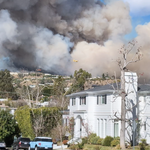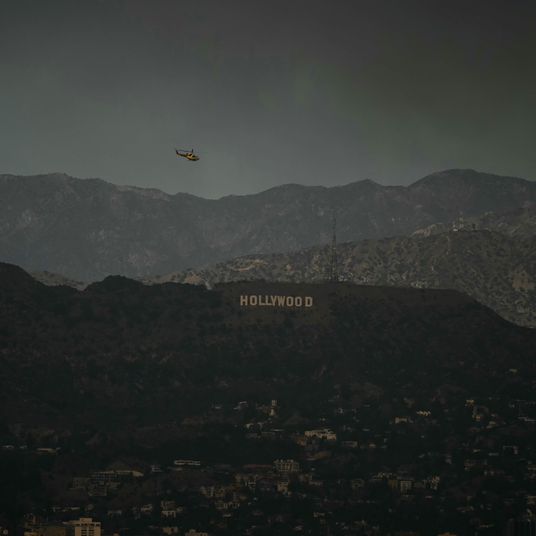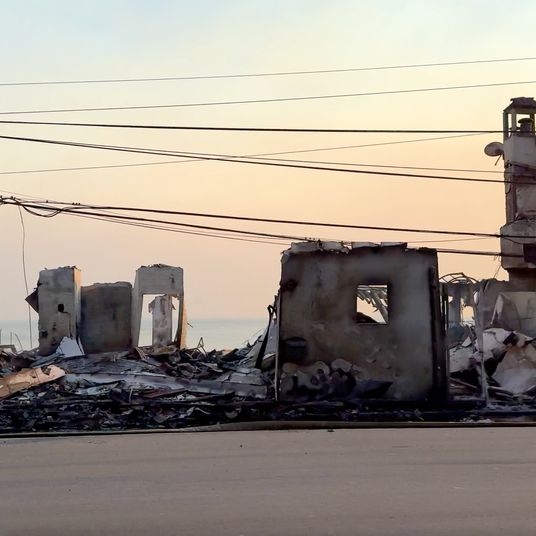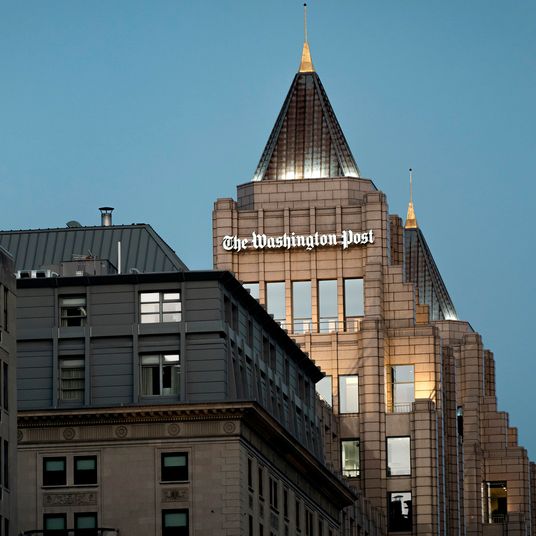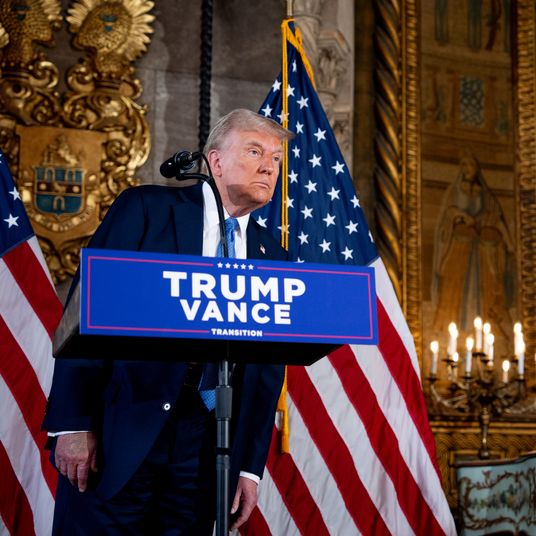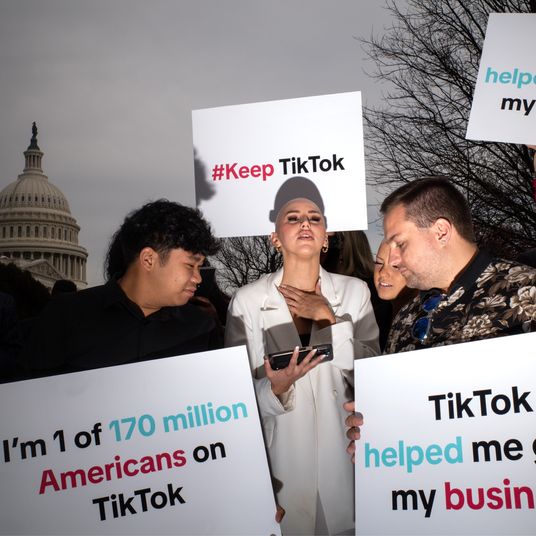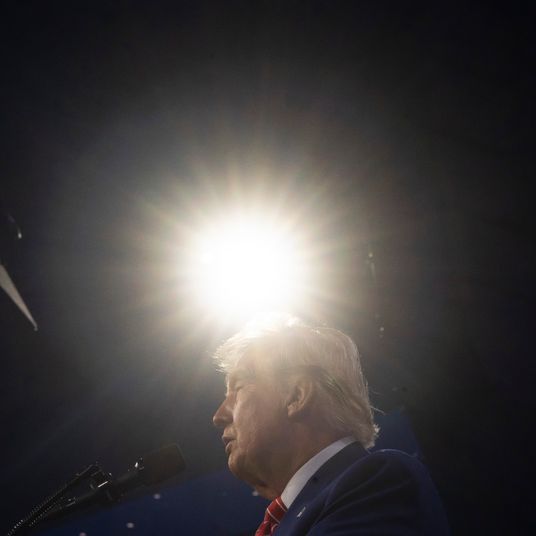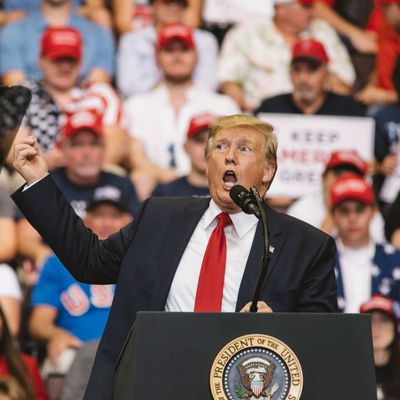
The key ingredient in most conspiracy theories is power — specifically, who has it, who doesn’t, and how far people are willing to go to secure it. They are top-down enterprises in many cases, the hidden hand of those with means and influence at play. But they take other forms too: Jesse Walker, author of The United States of Paranoia, submits that a belief in “enemy outside,” “within,” and “ below” conspiracies — outsiders, insiders, or underlings working to upend the social order, respectively — has informed paranoid speculation throughout American history. There’s no authority policing the lines that divide these categories, and as a result, they can easily be alleged in combination, leading to explanations that assign blame to factions with little in common but a supposed enemy. This is vital to a conspiracy theory’s non-falsifiability. Once a person or order is identified as a target, anything that opposes them can be cast as a co-conspirator in an outlandish plot.
Few invoke these rationales as fluidly, from such a high position, and with as little regard for their conflicting power dynamics or material realities as President Trump. On Saturday, Trump promoted the Twitter-borne conspiracy theory that Bill and Hillary Clinton had Jeffrey Epstein killed in jail. Epstein, a millionaire financier, was facing sex-trafficking charges in Manhattan when his second in-custody suicide attempt in the span of three weeks ended his life. Trump’s was not the only theory to circulate — liberals and Democrats, from documentarian Michael Moore to ex-Senator Claire McCaskill, suggested the president’s own Justice Department was responsible. (The DOJ oversees the facility where Epstein was being detained.) More prudent observers pointed to the regularity of jail suicides nationwide. Others avoided naming culprits, but maintained that the sudden death of a man thought to have dirt on so many powerful people — including Presidents Trump and Clinton — was too suspicious not to consider the involvement of foul play.
Trump’s peddling is especially significant because he is the president, and because the centrality of conspiracy theories to his rise is an alarming blueprint for future demagogues. Back when he was America’s foremost “birther,” Trump offered that President Obama was a Kenya-born Muslim who fudged his origins to ascend the ranks of American power — a position to which he had scant legitimate claim, in Trump’s estimation — in a bid to run the country as a real-life Manchurian Candidate. (Trump’s ulterior motive was to draw attention to his own White House ambitions, which Obama famously ridiculed.) When he was running for the Republican presidential nomination this past cycle, Trump claimed that Ted Cruz’s father was involved in John F. Kennedy’s assassination; the statement came after Rafael Cruz implored evangelicals to reject the eventual-nominee in favor of his son. And in the lead-up to the November 2018 midterms, Trump promoted the conspiracy theory that a migrant caravan was approaching the U.S. border from Central America, peopled with diseased criminals and terrorists and possibly bankrolled by liberal donor George Soros.
There’s no substantive theory of power behind these allegations. The first claims that a foreigner, Obama, duped real Americans like Trump to amass power for himself and his allies — communists, black radicals, global Islamists, and the like. The second links an evangelical preacher to the death of a Democratic president for the purpose of undermining Ted Cruz’s bid for evangelical voters, during a campaign that pitted Trump, considered an outsider, against Cruz and others, considered parts of the GOP establishment. And the third alleges a liberal conspiracy to thwart Trump’s rightful claim to power as president — most immediately in the form of a bottom-up takeover, marked by an influx of undocumented-immigrant voters and a Blue Wave that shifted power in the House of Representatives. The assailants in these cases came from many directions — outside, above, and below. But all were involved in conspiracies, in Trump’s view, because he saw himself and his goals among their targets.
This is the extent of what a conspiracy theory requires, when it boils down to it — insistence by its peddler that normal dynamics and explanations for an event are insufficient. In Trump’s case, this pursuit is helped by the fact that plenty of people dislike him; Obama, Cruz, the Clintons, and George Soros are probably included, lending theoretical credence to the notion that they’d go to absurd lengths to undermine him. But by inventing these lengths out of whole cloth and vastly exaggerating their stakes, Trump is also creating political targets for the more unhinged among his sympathizers. Robert Bowers built on the Trump-fueled Soros conspiracy theory by massacring worshippers at a Pittsburgh synagogue. Cesar Sayoc Jr. mailed pipe bombs to Obama and Hillary Clinton. These are the extremists, but there are moderates: The “birther” movement, of which Trump was the most vocal surrogate, was adopted by several Republicans in their own campaigns; Representative Mark Meadows sits on the House Oversight Committee as we speak. In these actions lies the real function of Trump’s lies, which is not merely to disparage his enemies. It’s to cast them as existential threats to everyday Americans, and to justify equally extreme measures in response.
Last week, Fox News’ Tucker Carlson claimed on-air that white supremacy is a hoax and a conspiracy theory meant to consolidate liberal power. It was both consistent with Trump’s rhetoric and an escalation of it — the notion that conservatives are under perpetual attack from conspirators to their left, who comprise America’s real power brokers and wish to enshrine permanent rule by marginalizing Trumpists as white supremacists. It was an insufficient explanation, for Carlson, that people might be ringing alarm bells about white supremacism because white supremacists have been implicated in several mass murders of late, including that of 22 people in El Paso the previous weekend. Something else had to be going on. And indeed it was, though not what Trump or the Fox News host has alleged. Peddling conspiracy theories is how Trump and his ilk respond to fairly straightforward threats. And when the powerful feel threatened by the everyday, everything can seem like a conspiracy — even when they have the most powerful political, military, and media entities at their disposal.




